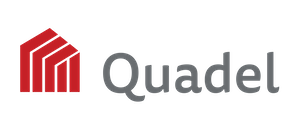HOUSING PROGRAMS

HOUSING CHOICE VOUCHER PROGRAM (HCV)

HUD-SUBSIDIZED MULTIFAMILY HOUSING PROGRAM

HUD subsidizes a wide range of Multifamily housing programs where the units and buildings are developed, owned and operated by private property owners and management companies. Units are generally targeted to lower-income, disabled, and elderly households. There are three broad categories of HUD-subsidized multifamily housing programs.
- HUD Mortgage Insurance Programs
These programs include the Section 221(d) (3) Below Market Interest Rate (BMIR), Section 236 and the Section 231 programs. In these programs, the Federal government provides mortgage insurance and reduced mortgage interest rates that result in lower operating costs and reduced rents.
- Non-Insured Programs – Direct Loans and Grants
These programs include the Section 202 and Section 811 programs. HUD provides low-interest direct loans or grants to develop housing for elderly persons and persons with disabilities
- Project-Based Rental Subsidies
These programs include the Rental Assistance Payment (RAP), Rental Supplement, the Section 8 Housing Assistance Payments (HAP), Project Assistance Contract (PAC), and Project Rental Assistance Contract (PRAC) programs. HUD pays housing subsidies to private owners on behalf of tenants to keep the amount that tenants pay for rent affordable. Unlike the HCV program, the subsidy or assistance is tied to the property, not the family.
Quadel offers Multifamily services, including training courses and consulting services.
LOW INCOME HOUSING TAX CREDIT PROGRAM (LIHTC)

Established in 1986, The Low Income Housing Tax Credit program promotes construction and rehabilitation of affordable housing by providing tax incentives for owners who rent their units to low-income tenants. Unlike most other Federal housing programs, IRS subsidizes the program through state housing finance agencies. A tax credit is a dollar-for-dollar reduction in the federal income tax liability of the owner and reduces the amount of federal income tax the owner must pay. Owners must comply with the established IRS regulations regarding applicant, resident, and unit eligibility or risk losing the credits.
Quadel offers LIHTC program services, including training courses and consulting services.
Rental Assistance Demonstration (RAD)

RAD provides PHAs a preservation tool for public housing properties and addresses the multi-billion dollar nationwide backlog of deferred maintenance. RAD allows PHAs to leverage public and private debt and equity in order to reinvest in the public housing stock. RAD also gives owners of three HUD “legacy” programs (Rent Supplement, Rental Assistance Payment, and Section 8 Moderate Rehabilitation) the opportunity to enter into long-term contracts that facilitate the financing of improvements. In RAD, units move to a Section 8 platform with a long-term contract that must be renewed in perpetuity. Residents benefit from a right of return, a prohibition against re-screening, and robust notification and relocation rights. Residents continue to pay their adjusted income towards rent, maintain the same basic rights as public housing participants and gain a new option to request tenant-based assistance. RAD is highly cost-effective by relying on shifting existing levels of public housing funds to the Section 8 accounts.
Quadel offers RAD program services, including training courses and consulting services.
PUBLIC HOUSING PROGRAM

HUD’s low-rent public housing program provides rental housing for approximately 1.3M low-income, elderly and disabled households. More than 3,300 local PHAs across the country manage public housing programs. The PHA enters into a contractual relationship with HUD and is responsible for the planning, financing, construction, management and maintenance of properties. Interested families must apply for public housing, and the PHA determines eligibility for each program participant. The PHA determines the rent for the eligible family based on its anticipated gross annual income.
Quadel offers RAD program services, including training courses and consulting services.
